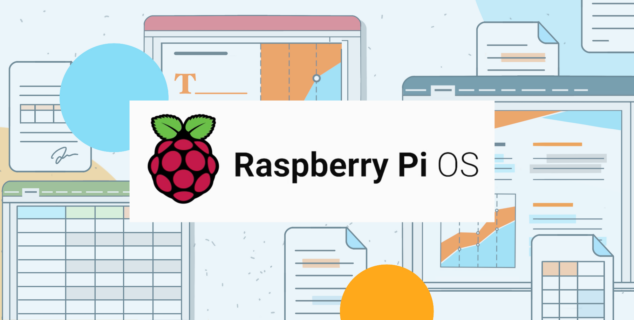What is cloud computing in 2025?
The widespread application of various hosted services, including servers, databases, networking, software tools and data storage via the internet, is known as cloud computing. Since its appearance in the early 2000s, the number of such IT services has increased dramatically and is still growing worldwide. Read this article to find out more about cloud computing and its benefits.

What is cloud computing?
Generally speaking, cloud computing is often referred to as the Internet-based delivery of a vast array of hosted services. Data storage and sharing, physical and virtual servers, databases, networking, analytics and software programs are just some of the most common examples that fall under this category.
There are a lot of key factors that make cloud computing a popular choice for individual users and companies, including lower costs and enhanced productivity, which results in better performance and even increased security.
In cloud computing, all data is located remotely in a virtual environment. In other words, files and programs are stored on remote servers provided by specialized companies. This implies that the users can access their data remotely because they are not confined to a physical location.
With cloud computing, your data and all related services and tools are accessible from any device that can connect to the Internet, anywhere in the world, as the Internet as a whole transforms into the cloud.

Advantages of cloud computing
There are many reasons why businesses and companies opt for cloud computing services. It’s possible to highlight the following benefits:
- Reduced costs. Businesses can significantly reduce their IT expenses by migrating to virtual environments. Physical hardware as well as the setup and maintenance of on-site datacenters are always more expensive than the implementation of IT services in the cloud.
- Instant availability. Most cloud computing services are instantly available on demand with only a few mouse clicks. This flexibility allows enterprises to avoid worrying about their capacity planning.
- Better productivity. Hardware setup and maintenance, software installation and update, deployment of physical servers and other IT-related tasks are no longer necessary when relying on cloud computing services, allowing IT specialists to focus on more important objectives.
- Enhanced security. Cloud service providers give you access to a wide range of technologies, tools, and universally accepted policies that improve your data privacy and protect your IT infrastructure and data against threats.
- Automation. Cloud platforms usually offer built-in AI and machine learning (ML) tools, making it easier for businesses of all sizes to automate such important tasks as data analysis, cybersecurity and predictive maintenance.
- Sustainability. Many providers implement eco-friendly policies and use renewable energy and carbon-neutral data centers, making cloud computing more eco-friendly than ever.
Disadvantages of cloud computing
As you can see, businesses can benefit from cloud computing in different ways. At the same time, there are some serious drawbacks that can’t be ignored:
- Downtime. One of the main complaints against cloud computing is its excessive reliance on the Internet. If there is an internet outage or poor connectivity, some IT services can become unavailable.
- Limited flexibility. All cloud computing services are fully run by cloud service providers, so customers are given less flexibility and control.
- Vendor lock-in. This term is used to describe a situation in which businesses utilizing a specific vendor’s cloud computing services are unable to move to another vendor due to high switching prices and other complications.
- AI-based security threats. With artificial intelligence technology getting more and more advanced, it can be used for evil allowing hackers to use AI to launch sophisticated cyberattacks against the cloud infrastructure of big companies.
- Compliance challenges. Businesses that use multi-cloud strategies might face contradictory compliance requirements across various regions and countries they operate in.
Common types
Depending on the deployment model, we can highlight the following types of cloud computing:
Public cloud
In public clouds, on-demand computing services and the corresponding IT infrastructure are shared across several enterprises managed by a single third-party provider. This means that users don’t have to host cloud-based services on their own because public cloud service providers can provide them with out-of-the-box apps and tools for a monthly or pay-per-use fee.
Private cloud
A private cloud, sometimes referred to as a corporate cloud, is a type of cloud-based deployment in which all software and hardware resources are allocated to and only available to one customer. A private cloud combines all of the advantages of cloud computing and is considered quite secure and reliable.
Hybrid cloud
Applications can also be operated in a hybrid cloud, which is a mixed computing environment that combines resources from public and private clouds for processing, storage, and other needs. Since nearly no one today depends solely on a single public cloud, hybrid cloud computing techniques are widely used.
Multi-cloud
Using many cloud computing services is referred to as “multi-clouding.” Typically, it entails utilizing a combination of public and private clouds from many cloud providers for various workloads or applications. Using many clouds can offer more redundancy, scalability, and flexibility than depending on just one provider.
Cloud computing services
Platform as a Service (PaaS), Software as a Service (SaaS) and Infrastructure as a Service (IaaS) are the three primary categories of cloud computing. Different degrees of control, flexibility, and management are offered by each type of cloud computing, allowing you to choose the ideal combination of services for your requirements.
However, there is another type of cloud computing services called Quantum computing as a Service (QCaaS) which allows deserves our attention as a new phenomenon.
Let’s take a deeper look at each option.
Platform as a Service (PaaS)
Platform as a Service, or PaaS, is a type of cloud computing in which a third party provides an application software platform. PaaS, primarily designed for developers and programmers, lets users create, execute, and administer their own applications without needing to create and manage the platform or infrastructure that is often involved in the process.
PaaS systems can operate on on-site hardware or in the cloud. In the case of managed offerings, a PaaS provider uses its own infrastructure to host the hardware and software, then makes this platform available to the customer over the internet as an integrated solution.
Software as a Service (SaaS)
When it comes to Software as a Service (SaaS), programs are hosted by a cloud provider and made accessible via the Internet. In this scenario, the application’s hosting may be contracted out to a third-party IT provider by an independent software vendor.
SaaS apps are used by a variety of corporate and personal users, as well as IT experts. Products range from sophisticated IT solutions to personal entertainment. SaaS products are often offered to both B2B and B2C users, in contrast to IaaS and PaaS.
Infrastructure as a Service (IaaS)
Infrastructure as a Service (IaaS) is a highly automated and standardized product whose clients can use computing resources held by a service provider together with networking and storage capabilities on a demand basis. Customers have direct access to self-service interfaces, including graphical user interfaces (GUIs) and application programming interfaces (APIs). The resources might be hosted on-site in a customer’s data center or by the service provider.
Quantum computing as a Service (QCaaS)
Quantum computing as a service (QCaaS) is a relatively new cloud-based service that allows businesses to access quantum computing hardware, software and tools remotely via cloud providers. This service makes it possible to run quantum algorithms and build complex simulation models to solve problems in areas like cryptography and machine learning.

Popular cloud computing platforms
Selecting the most effective cloud computing service might be difficult because there are countless options available. Making the right choice based on your needs is crucial. Here are some of the most popular cloud computing platforms that you might want to rely on in 2025:
- Amazon Web Services (AWS) is one of the most widely adopted cloud platforms, with millions of customers. It offers more than 200 services from data centers located in different parts of the globe.
- Google Cloud is a security-oriented cloud computing service from one of the biggest tech giants, which provides a wide selection of available options when it comes to IaaS and PaaS needs.
- Microsoft Azure is a cloud computing service provided by another tech giant, Microsoft, that allows you to create and run your applications, relying on almost endless scalability capabilities.
- Digital Ocean is a provider with data centers located globally whose main product is an IaaS platform for software developers.
- IBM Cloud is a cloud computing platform with a budget-friendly pricing model that provides a full range of services, including IaaS, SaaS and PaaS.
- OVHcloud is the biggest cloud computing provider in Europe that provides access to virtual servers located not only in the European region but also in other countries, such as the USA, Canada and Singapore.
- Alibaba Cloud is one of the world’s largest cloud computing companies which aims to support AI-driven growth and set its position as a leading global cloud provider.
- Oracle Cloud is a popular cloud computing service provided by Oracle Corporation which includes servers, storage and apps via a global network of data centers.
Key cloud computing trends in 2025
Here are some significant cloud computing trends to watch out for this year:
- AI-powered cloud services. Integrated into cloud platforms, AI tools optimize business processes and operations offering advanced analytics capabilities.
- Edge-cloud integration. The distinction between edge and cloud computing is diminishing, and their integration opens the door to real-time data processing at the edge, reducing latency and enabling cloud-based applications to function more efficiently.
- Combination of hybrid and multi-cloud strategies. This approach allows for greater flexibility, enabling businesses to distribute workloads across multiple cloud environments and avoid vendor lock-in.
- Serverless computing. Serverless architectures let developers to build and deploy applications without managing servers, which offers scalability and cost-efficiency.
- Enhanced cloud security measures and policies. The implementation of advanced security tools and solutions to protect against increasingly sophisticated cyber threats remains a top priority for cloud computing providers.
ONLYOFFICE as an example of a cloud computing service
ONLYOFFICE is an open-source project that is better known for its self-hosted solutions for document processing and collaboration. However, ONLYOFFICE also offers cloud-based software tools that make it easier for users to create, edit and collaborate on office files in real time.
Let’s take a quick look at what ONLYOFFICE has to offer in terms of cloud computing.
ONLYOFFICE Docs Cloud
ONLYOFFICE Docs Cloud is the SaaS version of the ONLYOFFICE suite, which allows you to access all the editing and collaborative features of the on-premise version and enjoy the same user experience without the need to install and configure the suite manually. The cloud-based version can be connected to different file storage platforms and DMS solutions like Nextcloud, ownCloud, Confluence, Alfresco, WordPress, Moodle, etc. with ready-to-use integration apps provided by ONLYOFFICE or official partners.
Sign up for ONLYOFFICE Docs Cloud and enable real-time document editing and collaboration within your business platform:
ONLYOFFICE DocSpace
ONLYOFFICE DocSpace is a collaborative platform designed to allow teams, clients and partners to collaborate on documents with ease. The platform is based on the concept of rooms, which are special spaces with predefined permissions where users can invite others and collaborate on office documents in real-time or using paragraph-locking and co-editing modes.
ONLYOFFICE DocSpace is hosted on secure servers based in Europe and the USA so users don’t need to spend their budget on administration having access to all recent updates.
Create a free account and start collaborating with others:
AI integration for better productivity
All ONLYOFFICE solutions are equipped with an AI plugin that allows for increased productivity and greater flexibility. When activated, the plugin makes it easier to deal with text-related tasks in documents, spreadsheets, presentations and PDFs due to the ability to add any AI model offered by the most popular AI providers — Open AI, Mistral, Groq AI, Together AI, Anthropic, DeepSeek and more.
No AI tool is enabled by default so users can choose their favourite AI assistant they trust and easily perform such tasks as text generation, detection of grammar and spelling mistakes, word analysis, translation, text summarization and extraction of key words for SEO purposes.
ONLYOFFICE and Cloud Computing Insider Awards
As a recognition of the high quality of the SaaS services provided by ONLYOFFICE, our team has won several prizes in the Cloud Computing Insider Awards powered by Vogel IT-Medien, one of the most prominent publishers and event organizers for information technology in Germany.
Readers of the Insider media portals (BigData-Insider, CloudComputing-Insider, DataCenter-Insider, Dev-Insider, IP-Insider, Security-Insider and Storage-Insider) vote for their favourite cloud-based services and solutions, making it possible to choose the best IT provider in various categories.
All the prizes below that ONLYOFFICE has won refer to the Cloud Content Management and Sharing & Collaboration categories:

Summary
For decades, cloud computing has been transforming the way businesses of all sizes operate, allowing them to reduce costs and focus on further growth and development. More and more companies are opting for cloud-based services, and this trend is expected to become even more widespread in 2025.
Useful links
Create your free ONLYOFFICE account
View, edit and collaborate on docs, sheets, slides, forms, and PDF files online.


